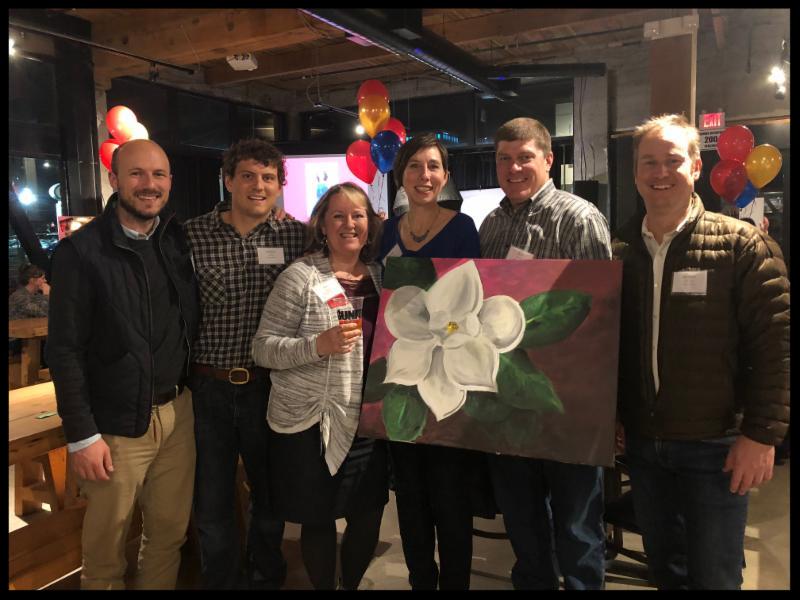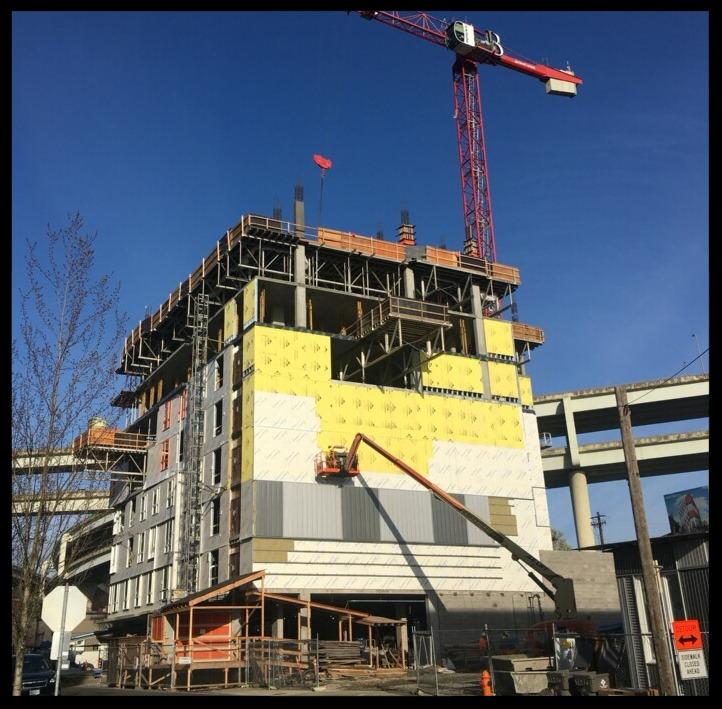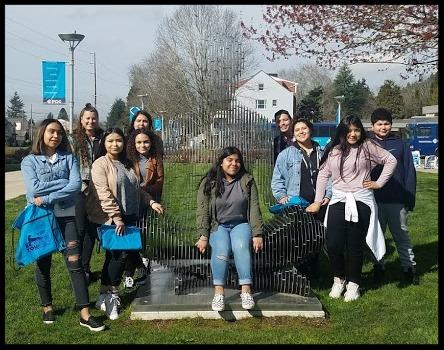|
|
Like us on Facebook and
k
eep up with IHI news,
events, and stories!
Please consider making a tax-deductible donation to help Innovative Housing, Inc. support the hard-working families and individuals who live in our housing. 
You may make a secure donation online at our website! You can also mail your donation to: Innovative Housing, Inc. 219 N.W. Second Ave. Portland, OR 97209 Thank you! ------------------------------ If you prefer to receive this newsletter in print, please contact us at [email protected] ------------------------------ |
|
|
Supporting the
Power of Housing
Innovative Housing's 2018 FriendMaker was a resounding success! Thank you to everyone who came out to support our work providing high-quality affordable housing to individuals and families. Thanks to the generous support of our 35 sponsors, we raised over $72,000 for our Resident Services Program! This critical support allows us to offer a wide range of adult and youth services across our portfolio, including eviction prevention, after-school homework programs, assistance securing benefits, and help overcoming obstacles to employment. 
Attendees at this year's event also had the unique opportunity to become tool sponsors for the new Maker Space in Phase 2 of the Magnolia Apartments. A Maker Space is a flexible community workshop where residents can complete small projects (like assembling furniture, building a class project, or painting something special), check out and use a variety of tools, and generally be creative, resourceful, and handy makers of wonderful things.
Perhaps most exciting, the new Maker Space will be a place where residents can join their neighbors to learn more about career pathways in the construction trades. IHI is partnering with Constructing Hope to offer introductory classes and pre-apprenticeship trainings in the Maker Space at the Magnolia Apartments, including a special training program to help young people explore construction careers!
IHI is grateful to all of our fantastic partners, sponsors, and individual donors who believe in the power of housing to change lives. Thank you!
|
|
From IHI's Executive Director
Sarah J. Stevenson
We hear a lot about resiliency these days. Organizations are supposed to be resilient. Our housing portfolio is supposed to be resilient.
We
are supposed to be resilient. Merriam Webster tells us that resilience is the ability to recover from or adjust easily to change or misfortune. As I become more trauma informed and increasingly aware of my own social privilege, I'm also beginning to understand why the mantra "when the going gets tough, the tough get going" doesn't work for everyone. We don't all have equal resiliency reserves and, like many things in life, it seems that those of us who start ahead often stay ahead.
Author George S. Everly, Jr., in his article "Building a Resilient Organizational Culture," suggests four basic principles to help operationalize resiliency: 1)
People prosper from success
- they need an environment where they can succeed; 2)
People learn from observing others
and can benefit from vicarious success - simply possessing membership in successful, or elite groups, may create a self-fulfilling prophecy; 3)
People need encouragement and support
- research shows that the single most powerful predictor of human resilience is interpersonal support; and 4)
People benefit from basic training in how to manage personal stress.
As the leader of a small organization, I see how these four principles can and should be integrated into our corporate culture. As a houser of people and families who struggle with generational poverty, disabilities, and histories of complex, recurring trauma, it seems harder to "operationalize resiliency." So many of the people we house face daily obstacles to success, significant misfortune, and constant change as they struggle to navigate bureaucracies and economic systems that were not designed to encourage their success. The membership groups to which they belong do not typically enjoy social privilege or celebrate achievements. They are under constant financial and personal stress, without professional coaching to help manage it. And yet, we see examples of our residents' resiliency every day.
Maybe it comes down to principle number three - interpersonal support. Who among us hasn't needed someone to listen, encourage, help us make tough choices, and get through hard times? We know that many of our residents have strong family and social supports and we bear witness to their extreme resiliency - parents juggling multiple jobs and coping with constant financial emergencies, students surviving trauma and excelling at school, and individuals managing and even overcoming chronic health conditions. Unfortunately, we also see residents being overwhelmed by change and misfortune, and many struggling to get by without family or social supports. That is where volunteers like the Trinity Project become so important. That is also where IHI's Resident Services staff can fill a crucial gap and lend a helping hand.
Change is inevitable and sometimes bad things happen. At IHI, our mission is to create supportive housing environments where people can succeed and we foster peer groups like our teen mentor program so young people can share in each other's academic achievements and college dreams. We do this work thanks to the support of friends like you - thank you for helping IHI and our residents be resilient!
|
Save the Date for a Topping Out Sneak Peek in June!
One year after breaking ground, IHI will celebrate the
 topping out of our newest family property in the Pearl. The building is far from finished, but the top floor will be complete and stand at its full
12-story glory! Join us as we celebrate this important benchmark and get an inside look at our construction in progress.
Stay tuned for more details to follow!
|
|
Hearts and Hands
at The Clifford
IHI and our residents at the Clifford Apartments are fortunate to enjoy a wonderful relationship with the Trinity Project, a small church that provides a healthy meal on the 4
th
Saturday of every month. For people who live on tight budgets and rely on government benefits, the end of the month can get very lean. Years ago IHI learned that during the last week of the month our residents often do not have enough food to sustain themselves. We began looking for partners who could help and, thanks to a personal connection with a member of the Trinity Project, our Resident Service Coordinator at the Clifford found a fantastic partner.
|
|
|
Members of the Trinity Project at the Clifford
|
As it turned out, the Trinity Project was looking for a volunteer opportunity where they could make a big difference. Over the last two years, the Trinity Project has served lunch at the Clifford on the 4th Saturday of each month. Every member participates in some way, from cooking or serving to hanging out with the residents and sharing stories. A highlight of the past two years has been a special Christmas meal. Trinity Project members prepare a full turkey dinner and bring gifts for residents. This year every Clifford resident received a care package of personal hygiene items, including shampoo, body wash, toothbrushes, toothpaste, soap, and household cleaning supplies. Everyone ate and visited, and also sang Christmas carols together.
The Trinity Project was created in 1999 with a broad vision to be a church for the Northwest. It is a small house church of just 12 members. They don't have a formal pastor, but rather a leadership team that plans and shares responsibilities, and are coached by a leader in their denomination (the Missionary Church). Folks at the Trinity Project love going to the Clifford. They have developed relationships with residents and enjoy spending time together. In the words of one of Trinity's volunteers, "It's not just about serving up a meal, but about encouraging each other with our lives and sharing our hope." IHI recognizes that personal connection means as much, if not more, than the physical sustenance Trinity provides. Thank you to the Trinity Project and the generosity of its members!
|
|
Coming to a Ballot Near You
Innovative Housing believes that everyone in Oregon should be able to access safe, affordable homes. In communities across the state, far too many of our neighbors are struggling to afford housing costs and are forced to choose between paying rent and other basic necessities.
Today, local jurisdictions can issue bonds for affordable housing, like Portland did in November of 2016. Unfortunately, Oregon's constitution limits how these bonds can be used in ways that minimize the impact of this funding. Under current law, the City must own projects financed by that bond and cannot leverage other key funding sources, including private dollars and bank loans. To help fix this problem, Oregon's legislature referred a measure to voters called HJR 201 to create an exception to constitutional limitations just for affordable housing. If passed, HJR 201 will allow leverage and public-private partnerships that will dramatically increase the number of units that can be created with local bond funds.
Constitutional amendments can be very challenging to pass, but this one is important. We need it to most efficiently and effectively use local bond funds prioritized by voters to address our housing crisis. IHI urges all of our friends and supporters to talk about the amendment with your friends and colleagues. Everyone who cares about affordable housing needs to take personal responsibility for raising awareness about this amendment!
|
|
IHI's Resident Services Program responds to resident needs and provides wraparound support that helps our residents be successful in housing and life. This support looks different at every site and for each household. Brenda's story is a great example of how resident services can help families who are working hard to provide the best for their children.
Brenda is ten years old and was born with a severe cleft palate. Brenda's parents, both indigenous Zapotecs' from Mexico, faced language barriers that made it very difficult to navigate a complicated and bureaucratic heath care system. This is where IHI's Bilingual Resident Service Coordinator Marisa stepped in. Brenda is a part of a cranio-facial team at a local hospital, but coordinating her care has been very challenging. Marisa began by helping to schedule appointments for Brenda and acting as a translator for her mother. It soon became clear that the care Brenda needed was more than her family or her cranio-facial team was able to handle. Brenda was being sent to different hospitals, referred to new specialists when she already had been seeing one for years, and dropped by other specialists.
|
|
| Brenda Shares Her New Smile |
Two years ago, Marisa began coordinating care for Brenda with the end goal of getting her surgery for a maxillary arch graft. Brenda needed to see roughly nine specialists in preparation for her surgery, her insurance had to be changed, and new relationships needed to be made with an orthodontist, ENT doctor, and speech therapist. She also needed extensive orthodontia work done; Brenda needed to have braces for a year before she was eligible for surgery.
After an incredible two-year journey, Brenda was finally ready for her surgery in April. It lasted several hours and included taking a bone graft. This incredibly brave girl faces a long recovery, but this was the last surgery she will need for several years. And now that her team is solidly in place, everyone is confident she will have continuous care until all of her corrective needs are met. This is a situation where it took a village - a dedicated family, a team of medical specialists, and a paid staff member who could translate and navigate complex bureaucracies - to get one little girl the medical treatment she needed. This is how resident services can make a difference and why they are such an important part of IHI's housing mission.
|
Every Spring, IHI staff takes resident teens

to visit college campuses. This component of IHI's teen mentor
p
rogram is designed to help resident children, many
of
who
m are potential first generation college students, learn a
bout and explore post-secondary education opportunities.
Over Spring Break
, s
everal teens partici
pated
in a tour of Portland Community College's SE campus, where they learned how to
connect with the college outreach coordinator and access other PCC resources.
|
|
A Play on Gentrification
Innovative Housing Inc. is proud to sponsor a new play about gentrification written by Michael Eichler and produced by Rose Community Development in association with PassinArt Theatre Company.
Repulsing the Monkey
is about a working class brother and sister in Pittsburgh who inherit a neighborhood tavern when their parents pass away. Developers from New York and California swarm in to make offers to buy and "retrofit" it to new uses. Do the siblings struggle to keep a vital neighborhood watering hole alive or sell?
This play premiered in Pittsburgh and enjoyed a successful run in San Diego. Now, thanks to Rose Community Development, it is coming to Portland for six nights in May (May 21-23 and 28-30). We look forward to sharing a creative new way to reflect on the complexities and challenges of gentrification and displacement, both of which are having significant impacts on Portland.
As May approaches, look for email and Facebook announcements about purchasing tickets and discussion panels that will follow two of the performances.
|
|
| |
|